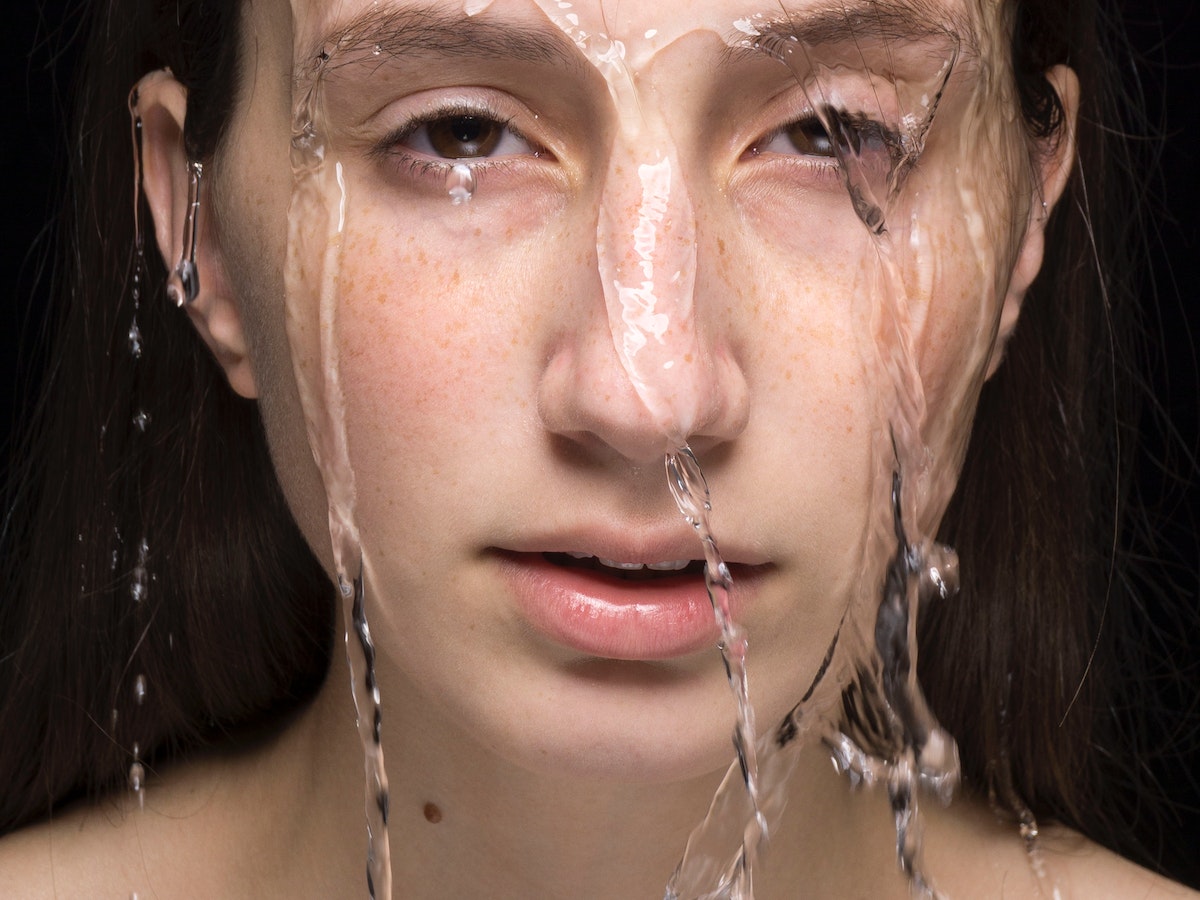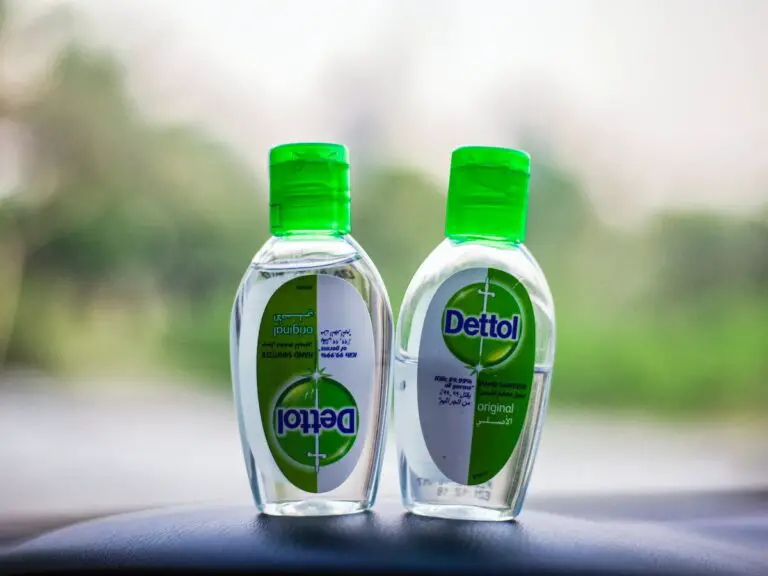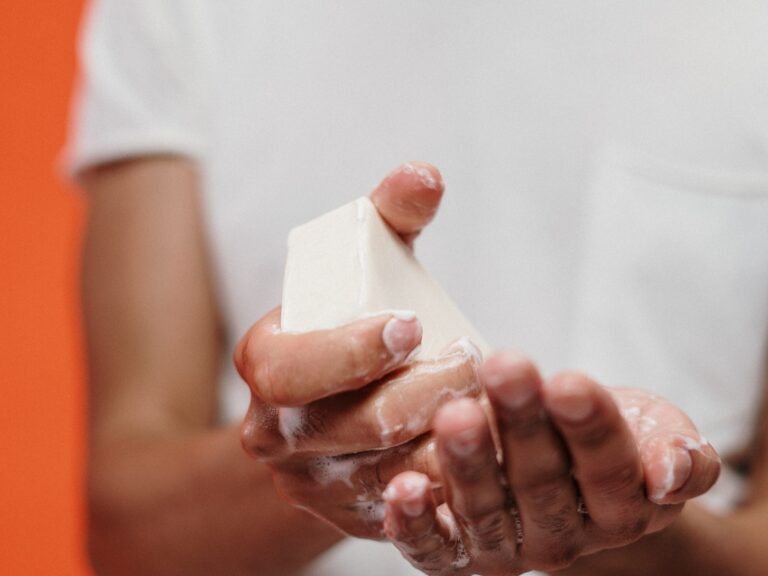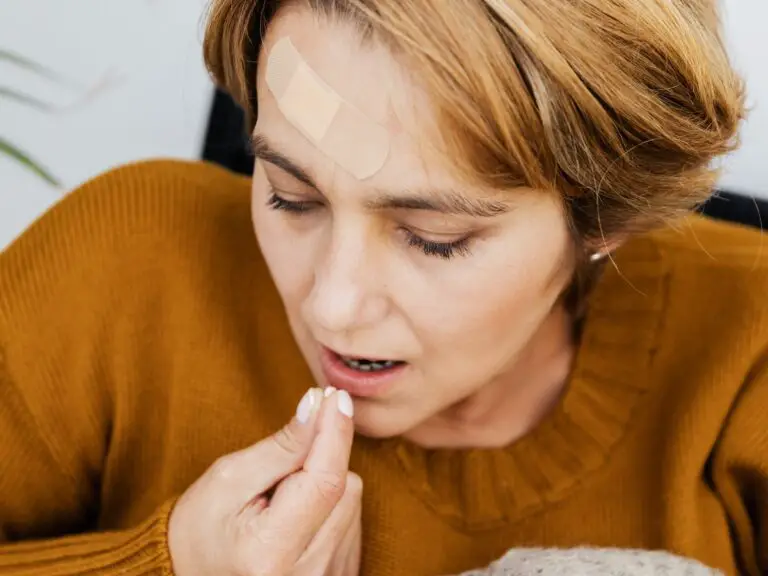How to Treat Acne Breakout Caused by Soft Water: Expert Tips
Medically Reviewed by;
Dr. Kashif
General Physician
Senior Medical Writer
Are you sick and tired of having acne that won’t go away no matter what you do? If you just moved to a place with soft water, you might be shocked to discover that it could be why your skin is acting up.
Even though soft water is good for keeping scale from building up in your pipes, it can worsen acne on skin that is already prone to it.
But there is still hope!
In this piece, we’ll give you advice from experts on how to treat acne caused by soft water and get the clear, blemish-free skin you’ve always wanted. We’ll walk you through the steps you need to take to fight acne caused by soft water, from changing your skincare routine to using specific ingredients. Let’s get started.
Table of Contents
Understanding the Link between Soft Water and Acne
Soft water, usually low in minerals, has been praised for making a rich lather and leaving the skin feeling soft and smooth. But when it comes to skin that gets acne, soft water can be hard to deal with. The pH level of the water and how it reacts with the face link soft water to acne.
Soft water’s pH is higher than hard water’s, which can throw off the acid layer of your skin. This can make your skin make more oil, clog your pores, and cause breakouts. Soft water also doesn’t have as many minerals as hard water, which can dry the skin and make it more oil as a defense. Understanding this link is important to treat acne caused by soft water correctly.
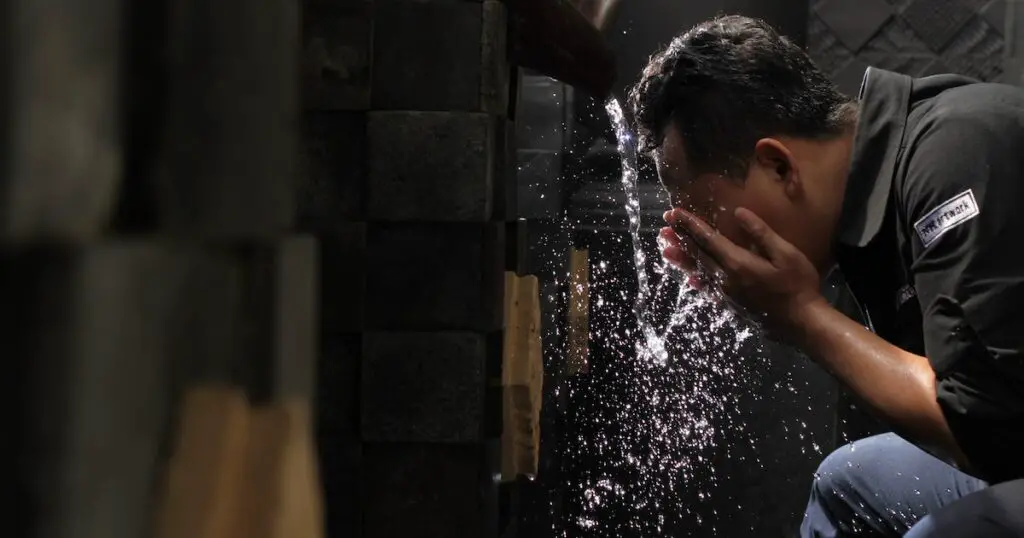
The Effects of Soft Water on the Skin
Soft water might feel nice and cool, but it can do many bad things to your skin, especially if you have acne. One of the biggest problems is that it might mess up the skin’s microbiome.
The skin’s microbiome is a delicate community of bacteria that helps keep the skin healthy and balanced. Soft water can change the microbiome by killing off the good bacteria and letting the bad ones grow. This imbalance can lead to inflammation and swelling, making acne worse.
Also, the lack of minerals in soft water can make the skin feel dry and tight, which can cause the body to make more oil to compensate for the loss of wetness. Because of this cycle, it can be hard to get clear skin. To get to the bottom of what’s causing your acne, you must know how soft water affects your skin.
Common Misconceptions about Soft Water and Acne
There are a lot of popular misconceptions about how soft water and acne are related. One of the most common is the idea that acne-prone people should drink soft water because it feels good on their faces. But, as we’ve already discussed, soft water’s higher pH level can throw off the skin’s natural balance and cause breakouts.
Another myth is that soft water can’t clog pores because it doesn’t have the chemicals that hard water does. Even though soft water may not cause scale buildup, it can still cause more sebum, which can block pores. These beliefs often lead to treatments that don’t work and frustration. By putting these myths to rest, we can concentrate on finding good ways to treat acne caused by soft water.
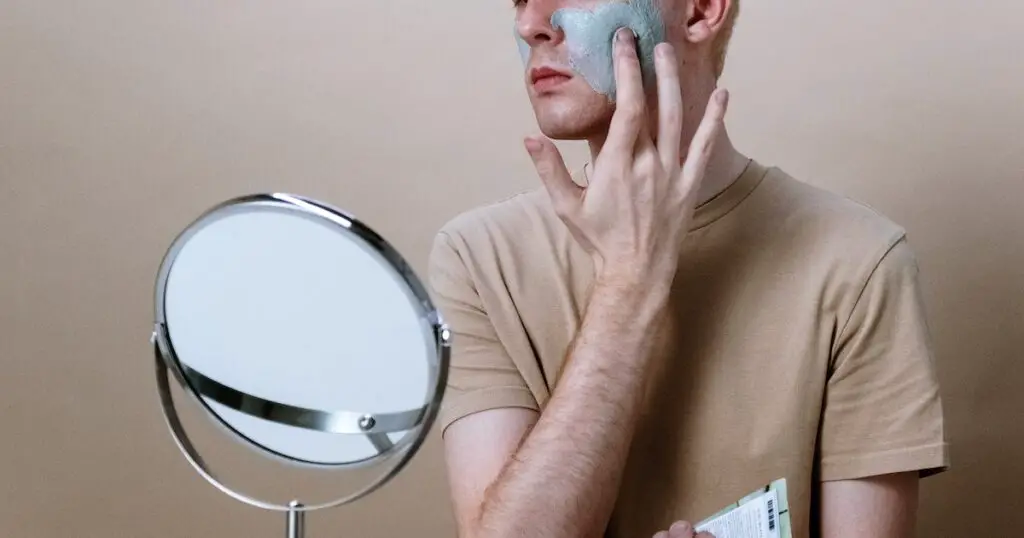
Expert Tips for Treating Acne caused by Soft Water
Now that we have a better idea of how soft water and acne are related, let’s look at some expert tips and tricks for treating acne in places with soft water. These tips will help you get your skin back to a healthy balance and reduce the number of breakouts. Remember that consistency is key when you use these tips, so be patient and give your face time to adjust.
Skincare routine adjustments for soft water users
When dealing with acne caused by soft water, it’s important to ensure your skincare routine suits your needs. Start by using a pH-balanced, gentle cleanser to help restore the acidity of your face. To prevent your pores from being clogged and your skin from producing excess oil, you should avoid using abrasive cleansers.
Also, consider using a chemical cleanser with salicylic acid or glycolic acid to help clear your pores and stop acne. These exfoliants can also help remove dead skin cells and speed up cell turnover, making your skin smoother and brighter.
Recommended products for acne-prone skin in soft water areas
Choosing the right items can make a big difference in your skincare journey if you have acne-prone skin and live in an area with soft water. Look for lotions that won’t clog your pores and light sunscreens that don’t contain oil to protect your skin without making it feel greasy.
Benzoyl peroxide or tea tree oil are two examples of acne-fighting ingredients used in goods to help stop breakouts. But don’t use too much because these products can dry out and irritate your skin. Add new products to your routine slowly, and pay attention to how your skin reacts to find the right mix.
DIY remedies for treating acne caused by soft water
If you’d rather use natural treatments, you can do a few things yourself to get rid of acne caused by soft water. People often use a mixture of apple cider vinegar and water as a cleaner. Apple cider vinegar can help restore the pH balance of the face and fight bacteria that can cause acne.
Another choice is to make a face mask with soothing and anti-inflammatory ingredients like turmeric, honey, or aloe vera. These do-it-yourself treatments can be added to your regular skincare routine and help you fight acne even more.

Lifestyle Changes to Improve Skin Health in Soft Water Areas
You can improve your skin health in soft water places by changing your skincare routine and using targeted products. You can also make changes to your lifestyle that can help. Here are some things to think about:
Hydration is key
Drinking enough water is important for keeping your face healthy. Even in places with soft water, staying hydrated helps your face stay plump and moist from the inside out. Aim for at least eight glasses of water daily to help your skin do what it does naturally and keep your face clear.
Be mindful of shower temperature and duration
Even though a hot shower might feel relaxing, it can strip the face of its natural oils and worsen acne. Instead, take gentle showers and limit the length of your showers to keep your skin from getting too wet. After you get out of the shower, dry your skin with a clean towel. Leave a little water on the surface to help lock in moisture.
Consider investing in a water filter
If soft water is causing you to have acne that won’t go away, you might want to buy a water filter or softener system. These systems can help eliminate impurities and adjust your water’s pH level, making it better for your skin and more balanced.
Seeking Professional Help for Acne by Soft Water
If you’ve tried different treatments and tweaks to your skincare routine, but nothing has worked, it may be time to see a professional. Dermatologists are trained to find out what’s wrong with your skin and fix it.
They can also give you personalized advice that fits your needs. They may give you creams or pills, do treatments in the office, or suggest changes to your lifestyle that can help you get clearer skin. If your acne keeps returning despite your best efforts, don’t hesitate to talk to a doctor.
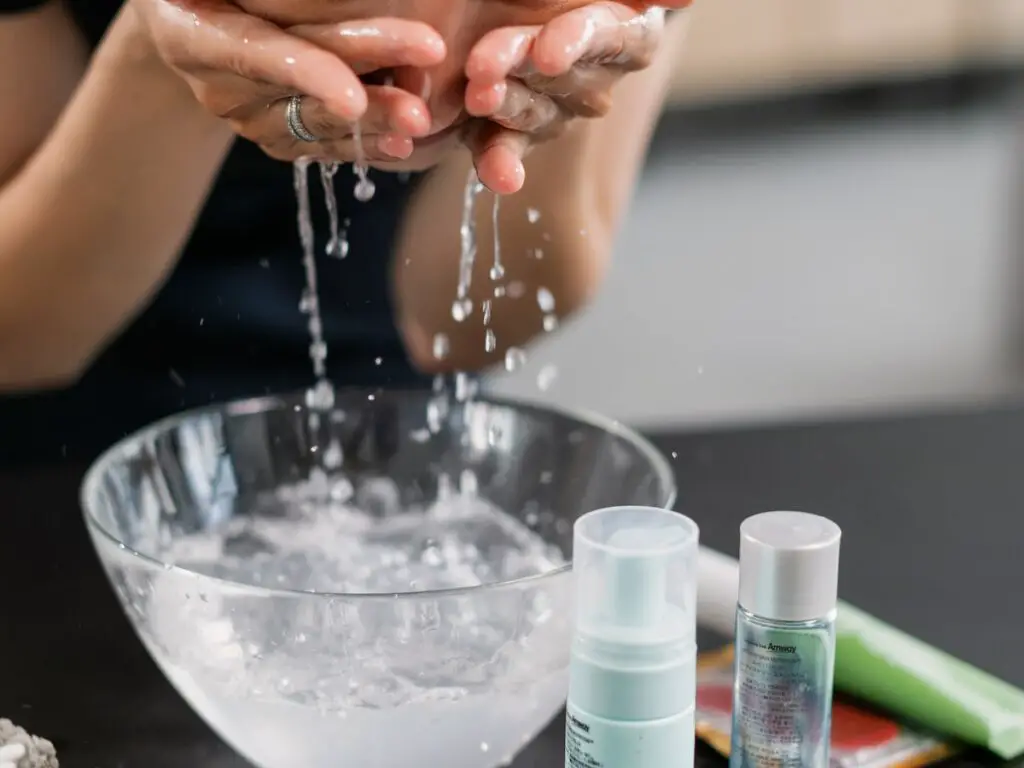
Conclusion
It can be difficult to deal with acne caused by soft water, but if you know what to do and have the right information, you can take control of your skin and get the clear complexion you want. By learning about the link between soft water and acne, making changes to your skincare routine, using specific products, and changing your lifestyle, you can fight acne caused by soft water. Remember that finding the right way to do something may take some trial and error, so be patient and keep trying. Even if you live in an area with soft water, you can get clear, glowing skin if you give it time and keep at it.
FAQs
Soft water itself does not directly cause acne breakouts. However, it may contribute to skin dryness and a disrupted skin barrier, potentially worsening acne or leading to other skin issues. Using a gentle cleanser, hydrating moisturizer, and incorporating exfoliation and acne treatments into your skincare routine can help mitigate the effects of soft water and manage acne caused by other factors.
To treat acne caused by soft water:
1. Focus on maintaining a balanced skincare routine.
2. Use a gentle cleanser to remove impurities without stripping the skin.
3. Consider incorporating products with salicylic acid or benzoyl peroxide to target acne.
4. Hydrate the skin with a non-comedogenic moisturizer and use oil-free or water-based cosmetics.
5. Consider installing a water softener or using a pH-balancing toner. If the issue persists, consult a dermatologist for personalized advice and treatment options.
Signs that your water is too soft include difficulty lathering soap or shampoo, a slimy or slippery feeling on the skin, hair feeling weighed down, and increased dryness or irritation after showering. You may also notice mineral buildup on fixtures or a metallic taste in drinking water.
Skin problems caused by soft water can include dryness, irritation, and increased susceptibility to acne breakouts. Soft water can strip the skin of its natural oils, leading to dryness and potential irritation. Additionally, soft water’s lack of mineral content can disrupt the skin’s natural pH balance, making it more prone to acne-causing bacteria.
The slimy feeling experienced with soft water is due to the reduced amount of minerals. Soft water can leave a residue on the skin, making it feel slippery or slimy. This can cause discomfort and may contribute to clogged pores and acne breakouts. Using gentle cleansers and moisturizers can help restore the skin’s balance and alleviate the slimy sensation caused by soft water.

General Physician
Senior Medical Writer
